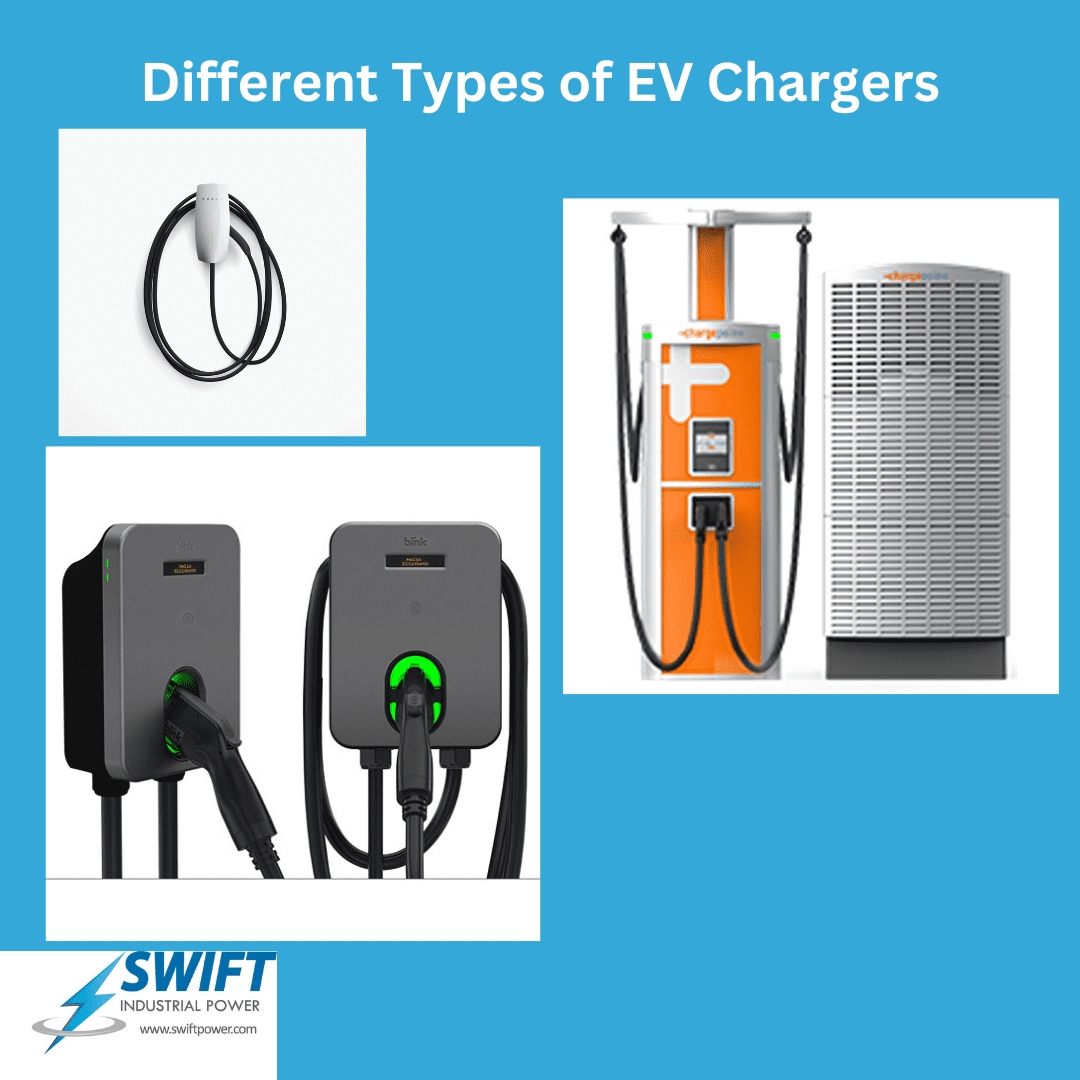Understanding the Different Types of EV Chargers and Their Installation Requirements
| As electric vehicles (EVs) become more popular, understanding the different types of EV chargers and their installation requirements is crucial for both homeowners and businesses. Choosing the right charger and ensuring it is installed correctly can maximize efficiency, enhance convenience, and ensure safety. This guide will walk you through the various types of EV chargers available and what you need to know about their installation. Types of EV Chargers EV chargers are categorized into three main types: Level 1, Level 2, and DC Fast Chargers (Level 3). Each type has distinct features, charging speeds, and installation requirements. 1. Level 1 Chargers Overview: Level 1 chargers are the most basic type, often included with the purchase of an EV. They use a standard 120-volt household outlet. Charging Speed: These chargers provide a slow charging speed, typically adding 3-5 miles of range per hour. Installation Requirements: Outlet: Requires a standard 120-volt outlet. Cost: Minimal, as no additional equipment or electrical work is usually needed. Setup: Simply plug into the existing outlet and connect to the vehicle. 2. Level 2 Chargers Overview: Level 2 chargers are more powerful and require a 240-volt outlet, similar to those used for large appliances like dryers or ovens. Charging Speed: They provide a faster charging speed, typically adding 20-30 miles of range per hour. Installation Requirements: Outlet: Requires a dedicated 240-volt outlet. Electrical Panel: May need an upgrade to your electrical panel to handle the increased load. Professional Installation: Often requires a licensed electrician to install the outlet and ensure the electrical system can support it. Cost: Moderate, including the price of the charger and potential electrical upgrades. 3. DC Fast Chargers (Level 3) Overview: DC Fast Chargers, also known as Level 3 chargers, are the fastest charging option and are typically found at commercial locations such as highway rest stops and shopping centers. Charging Speed: They can add 60-100 miles of range in just 20 minutes. Installation Requirements: Power Supply: Requires a three-phase power supply, which is typically available in commercial or industrial settings. Equipment : Specialized and more expensive equipment is needed. Professional Installation: Requires professional installation and significant electrical work, including permits and potential infrastructure upgrades. Cost: High, both for the equipment and the installation process. Key Considerations for Installation When installing an EV charger, several key considerations must be addressed to ensure safety and functionality: 1. Electrical Capacity Ensure your electrical system can handle the additional load. A professional electrician can evaluate your system and recommend any necessary upgrades. 2. Location Choose a location that is convenient for regular charging. For home installations, this is typically the garage or driveway. For businesses, consider areas where vehicles are parked for extended periods. 3. Permits and Regulations Check local regulations and permitting requirements. Some installations, particularly for Level 2 and DC Fast Chargers, may require permits and inspections to ensure they meet safety codes. 4. Safety Features Install safety features such as circuit breakers and surge protectors to prevent electrical hazards. Modern chargers often come with built-in safety features, but additional precautions can enhance safety. 5. Future-Proofing Consider future needs when selecting and installing a charger. With the increasing adoption of EVs, installing a higher-capacity charger or ensuring your system can be easily upgraded can save time and money in the long run. Conclusion Understanding the different types of EV chargers and their installation requirements is essential for making an informed decision that meets your needs. Whether you are a homeowner looking to charge your electric vehicle conveniently at home or a business aiming to provide charging facilities for customers or employees, selecting the right charger and ensuring proper installation can maximize efficiency, safety, and convenience. As the EV market continues to grow, being equipped with the right knowledge will help you stay ahead in the transition to electric mobility. For more information on EV charger installation and maintenance, visit our site. Stay informed with expert advice and solutions to keep your EV charging system running smoothly. Visit our site for more details! https://swiftpower.com/ev-charging/ |

